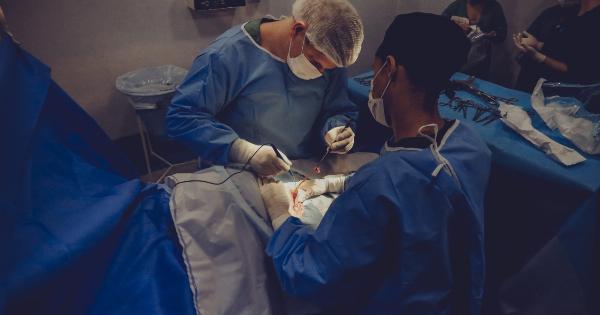Getting a hair transplant is a big decision, and choosing the right surgeon is crucial to achieving the desired results. To ensure you are making an informed decision, it is important to ask your hair transplant surgeon the right questions.
Here are ten essential questions to ask before undergoing a hair transplant procedure:.
1. How many years of experience do you have in performing hair transplant procedures?
Experience is a crucial factor when choosing a hair transplant surgeon. It is essential to inquire about the surgeon’s experience in performing hair transplant procedures. A long history of successful procedures indicates expertise and reliability.
2. Are you a board-certified surgeon specializing in hair restoration?
While any licensed physician can legally perform a hair transplant, it is crucial to choose a surgeon who specializes in hair restoration.
Board-certification in the field ensures that the surgeon has undergone rigorous training and education specifically related to hair transplantation.
3. May I see before and after photos of previous patients?
Before committing to a hair transplant procedure, it is essential to review the surgeon’s previous work.
Asking to see before and after photos of previous patients provides you with a clear understanding of the surgeon’s skills and the potential results you can expect.
4. What is the recommended course of action for my specific hair loss condition?
Each person’s hair loss condition is unique, and a one-size-fits-all approach does not work in hair transplantation.
Your surgeon should thoroughly evaluate your hair loss condition and recommend a personalized course of action tailored to your specific needs.
5. What hair transplant technique do you recommend for me?
There are different hair transplant techniques available today, such as follicular unit transplantation (FUT) and follicular unit extraction (FUE).
Each technique has its advantages and disadvantages, and your surgeon should recommend the most suitable technique for your specific case.
6. What is the success rate of the recommended hair transplant technique?
It is essential to get insights into the success rate of the recommended hair transplant technique. Ask your surgeon about the percentage of successful procedures they have performed using the recommended technique.
A high success rate indicates the surgeon’s proficiency and the likelihood of satisfactory results.
7. What are the potential risks and complications associated with the procedure?
Like any surgical procedure, hair transplantation carries some risks and potential complications. It is crucial to understand these risks and complications before making a decision.
A reputable surgeon will be transparent about the potential risks and provide you with the necessary information to make an informed choice.
8. What is the estimated recovery time?
Understanding the recovery process is essential to plan your post-procedure activities. Ask your surgeon about the estimated recovery time and any restrictions or precautions you need to follow during that period.
This will help you make the necessary arrangements and manage your expectations.
9. What kind of post-operative care and support do you provide?
Proper post-operative care is crucial for optimal results and a smooth recovery. Inquire about the post-operative care and support provided by the surgeon or their clinic.
Knowing that you will receive adequate care and guidance after the procedure will give you peace of mind.
10. What is the cost of the procedure, including any potential additional expenses?
Cost is an important consideration for most individuals when deciding on a hair transplant. Inquire about the total cost of the procedure, including any potential additional expenses, such as follow-up appointments or medication.
Discussing the financial aspect upfront will help you plan and make an informed decision.
Remember, choosing the right hair transplant surgeon is vital for the success of the procedure and the satisfaction of the final results.
Asking these questions will empower you to make an informed decision and select a surgeon who is well-qualified, experienced, and capable of meeting your expectations.





























